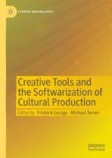Search
Filters applied:
Search Results
-
One-Act Shakespeare: Teaching Cultural Legacy Through Excerpts and Adaptations
Despite widespread resistance to teaching Shakespearean drama through excerpted passages, an alternative to the standard two-week study of a...
-
Green Shakespeare and the Environmental Studies Classroom
As early modern scholars and teachers, we often discuss the need to defend our field of study—to make Shakespeare relevant to our students and...
-
Online Shakespeare: Beneficial Learning Experiences for Non-Majors
When studying Shakespeare’s plays, most undergraduates struggle with close reading, textual analysis, and interpretation. Engaging with and...
-
Enhancing Creative Engagement with A Midsummer Night’s Dream, Much Ado About Nothing, Hamlet, and Othello and Gen-Z Culture
Teaching Shakespeare to non-majors is one of the most rewarding tasks an English professor can embrace. Students who are not English majors offer...
-
“To Double Business Bound”: Shakespeare and Gen Ed
The opportunity to teach Shakespeare beyond the major often hinges on General Education requirements. At the University of Tennessee, where I teach,...
-
Artist and Agency: Technologies for Exploring Self and Place
This chapter explores how software-based compositional processes can be used to explore relationships between self and place. The process of creating...
-
“Unnecessary Conversations”: Talking Sex in the Early Modern Polish Village
This chapter shows us how early modern Polish peasants used to discuss sex. Despite the rules of decorum, conversations about sex were still...
-
Language, Settings, and Networks for Early Modern Private Conversations
This chapter introduces the research area by proposing the angle of privacy to analyse the subject of everyday conversations in early modern Europe....
-
The Spatial Languages of Virtual Production: Critiquing Softwarization with Aesthetic Analysis
The chapter analyses the emergent practice of virtual production and the generation of in-camera visual effects (ICVFX), a process currently...
-
Dolby Atmos Music and the Production of Risk
The launch of Dolby Atmos in 2012 marked a significant development in commercial surround sound, allowing for audio to be positioned above as well as...
-
Figurations of the Tool Agnostic
In this chapter, we sketch the outlines of the tool agnostic as figuration, a cultural trope for techno-social agency, that is particularly suited to...
-
The Expressive Subject: Prosumers, Virtuosi, and Digital Musical Control
This chapter proposes expressive subjectivity as a framework to describe relations between the creativity dispositif, prosumer culture, and digital...
-

-
An Agenda-Setting History
Following the survey of the book and the main historical stages of the history of the human sciences in the modern university outlined in the preface...
-
“We Take Care of Our Own”: Talking about ‘Disability’ in Early Modern Netherlandish Households
This chapter investigates how people in the Netherlands talked about disability, poverty, and charity in the privacy of their homes in the sixteenth...
-
The Way Out Is Through: Co-produced Critical Utopia as an Antidote to Anthropocenic Academic Melancholia
The starting point for this chapter is the late Mark Fisher’s work on nascent postcapitalist desire, as a curtailed exploration of the anxiety and...
-
Challenging Dystopia with Laughter: Yan Lianke’s Inversion of Political Slogans in Serve the People!
While dystopian literature tends to be dark and ominous, Yan Lianke’s (b.1958) numerous satires of revolutionary politics and corruption in the...
-
From Modern Feminist Utopias to Feminist Post-utopia: Biopolitics and Women’s Emancipation
The fundamental principle of modernity on which the utopian stories of the late nineteenth and early twentieth centuries are based, biopolitics as an...
-
From Medieval Utopia to Modern Dystopia
The rich vocabulary of medieval Islamic apocalyptic and eschatological compilations is familiar to modern Arab writers, yet influenced by modern...
-
‘Rending the Veil of Mortal Frailty’: Queen Mab (1813)
This chapter, focusing on Queen Mab (1813), arguesShelley, Percy Bysshe that Shelley’s early vision of death is informed by a distinct amalgam of...
